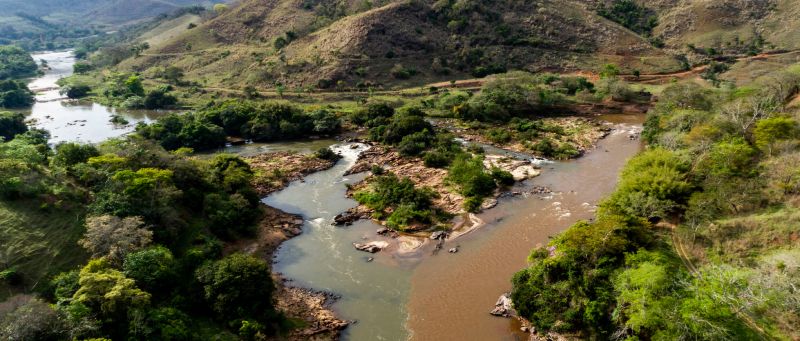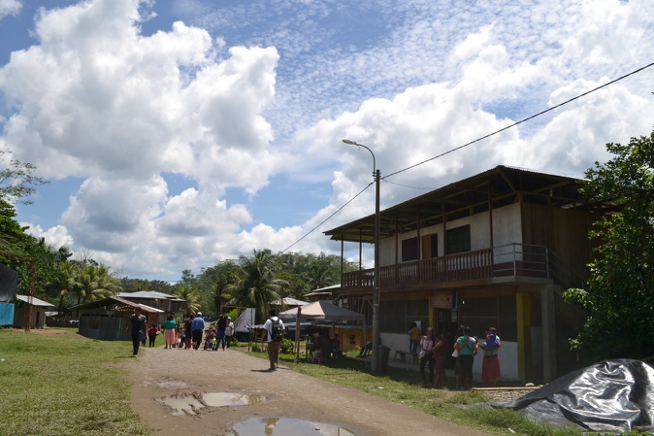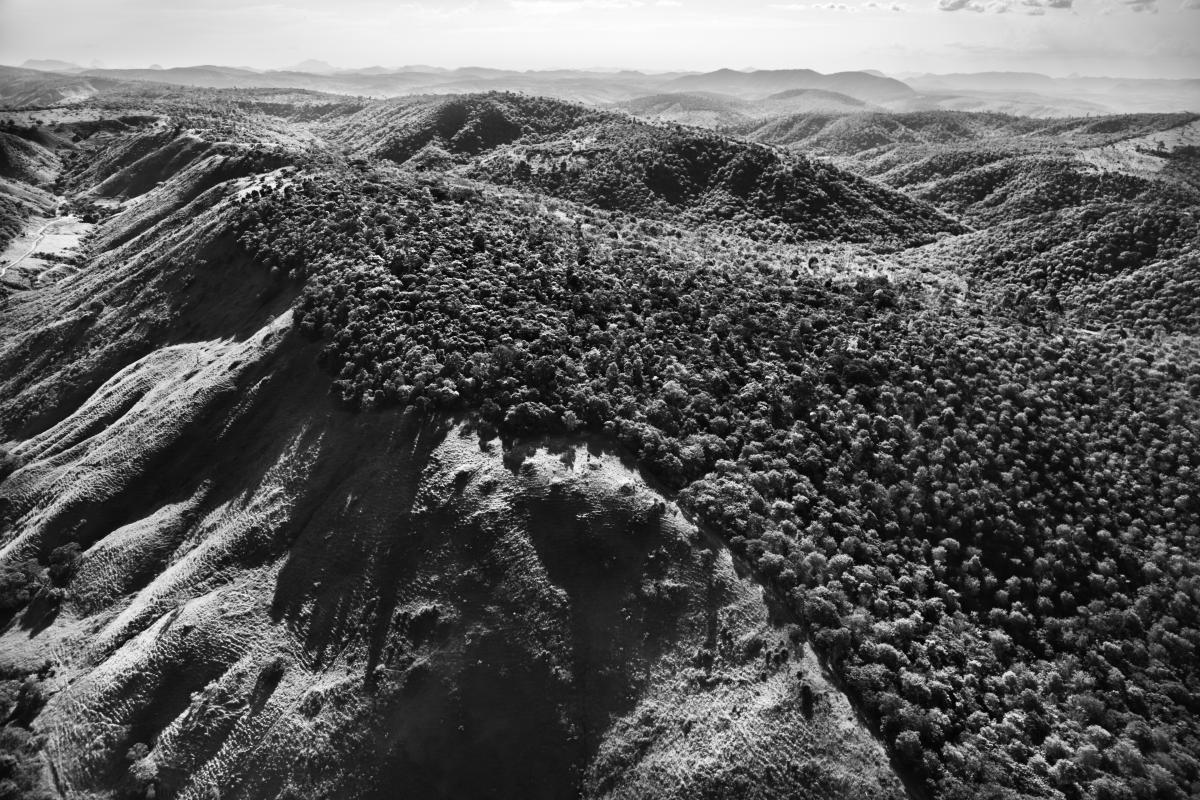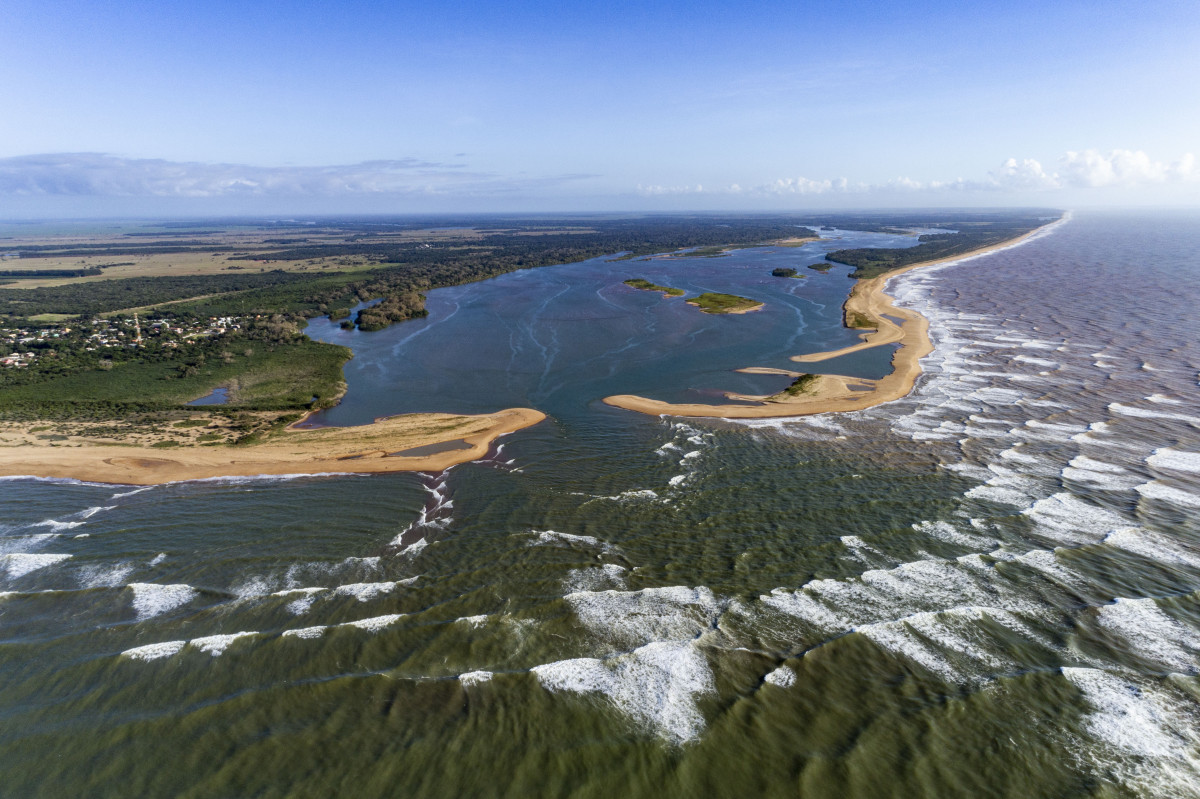Rio Doce Panel recommends investments in alternative jobs and training of young professionals for a sustainable future in the basin
Belo Horizonte, 25 March 2019 (IUCN) - The Rio Doce Panel, an independent panel of experts coordinated by the International Union for Conservation of Nature (IUCN) to advise the Renova Foundation on the recovery efforts of the Rio Doce Basin, today announced new recommendations for communities in the region to diversify their economies and prevent continued environmental degradation.

Photo: Renova Foundation
In the first of a series of Issue Papers, the Rio Doce Panel examines how the Foundation could incorporate measures to promote regional economic alternatives, such as forest restoration chains and community-based tourism, that could underpin a more sustainable future for all of the inhabitants in the Rio Doce watershed.
The region’s economy, affected by the Fundão tailings dam collapse in November 2015, is still heavily dependent on the extraction of natural resources. The impact of the dam disruption has led to a decline in key sectors in the states of Minas Gerais and Espírito Santo, such as mining, agriculture, livestock, and fishing, leading to a reduction of formal jobs and livelihood alternatives for the residents.
Other relevant activities in the region, such as eco-tourism, community-based agro-tourism, and dairy production, also suffer the effects of economic deceleration and show that there is a real need for diversification. Such action could create opportunities for profit generation while promoting the protection of values and ecosystem services and reducing the dependency on the compensatory measures provided subsequent to the dam collapse.
“Current compensation programmes are insufficient to promote the region’s long-term economic recovery,” says Peter May, the lead author of the paper. “New opportunities – such as investing in sustainable supply chains, building new technical capacity and fostering nonconventional partnerships with a special focus on youth employment – must be considered if local communities are to achieve socioeconomic and environmental resilience, in addition to current ongoing investments in economic development.”
The Issue Paper, Alternatives for livelihoods in the rural landscapes of the Rio Doce Basin after the Fundão Dam failure - Creating opportunities for the future, explore the benefits of alternative economic activities that are consistent with Rio Doce’s restoration and promotes prioritising policy instruments and funding that can help support these efforts.
For example, national legislation to protect native vegetation that has amended the Brazilian Forest Code could serve as a stimulus to restore degradation of land and water quality, as well as provide new jobs, tax revenues associated with seedling production and increase local knowledge about these endemic species.
The Rio Doce Panel Chair Yolanda Kakabadse added: "After decades of mining and intensive agriculture, the communities of the Rio Doce Basin need to foster the development of new value chains that will allow the region to recover in the long term, while considering the immediate needs and opportunities that arise in the restoration process."
The recommendations of the Rio Doce Panel emphasize the need for requalification of professionals displaced by the dam failure and by the wider economic changes in the region. They particularly highlight the importance of investment in the formation of young professionals. The authors suggest that support can be leveraged by expanding development funds and technical assistance, and through extension programmes that support innovation in the rural environment and strengthening value chains.
The paper also reflects on the need to create additional financial policies and instruments that can stimulate the development of these activities, building permanent opportunities for the entire region.
According to Roberto Waack, CEO of the Renova Foundation, the process of building a sustainable future for the Rio Doce basin includes education and social protagonism. “The education of young leaders is at the heart of compensation actions. One such example is the partnership with Instituto Elos, which provides education services to about 90 youths along the Rio Doce Basin, so they may fulfill the collective dreams of their communities. We have also entered into an agreement with Instituto Terra to provide youth training, an intensive course in forest restoration that helps ensure sustainability and improve the quality of water supply in rural properties."
The Rio Doce Panel comprises international and national experts, who bring diverse technical skills, academic qualifications and local knowledge to the table. Among them, the Chair of the Panel, Ms. Kakabadse, is the former Minister of Environment of Ecuador and a former President of IUCN. The lead author is Peter May, a senior professor at the Department of Development, Agriculture and Society of the Federal Rural University of Rio de Janeiro, Brazil (UFRRJ).
Notes to the editor
More information about the Panel, please visit the website.
To read the full study, download it in English or Portuguese.
To schedule interviews, contact:
Renata Bennet, IUCN Brazil
Tel: +55 61 3547 2588, Mobile: +55 61 99819 3905, renata.bennet@iucn.org; Website: http://iucn.org



